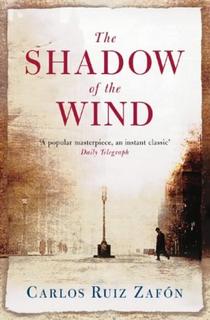
Now here's a book that, until Feera lent it to me, was nowhere on my radar. She lent it to me quite recently, but I read it almost immediately after I put The Belgariad down. No wait, not almost. I read it immediately ><. Syat and Khairul, don't hold it against me for not reading YOUR books instantly- yours are thicker. This book is thin. So I decided to get it over and done with quickly.
And words can't express how glad I am that I decided to read it quickly. It's good. Seriously. The story revolves around a girl, Medina, and her twin brother Jim who live in Palos Verdes, California. It's a modern setting. No, it's not a fantasy book. It leans more towards Young Adult, though it arguably stands on a higher ground in terms of maturity. At first glance, it seems like another adolescent's account of growing up, of coming-of-age, but beneath that, what it really is is a subtle account of a family breakdown.
And that's where it becomes real. Medina's life is far from perfect to begin with. Her breasts are small (this fact is highlighted quite often), 'plastic girls' at high school stop to make fun of her every so often, she doesn't have much friends other than her brother, no, slash that, she hardly has ANY friends other than her brother, and to top it all off, her parents' marriage is disintegrating. To keep her mind off her troubles, Medina resorts to surfing at the beach right outside her house, taking up the challenge of bigger and bigger waves. Taking up bigger and bigger risks.
Meanwhile, her relationship with her brother starts falling apart as her brother sides with her resentful mother when the marriage falls apart. Her mother doesn't make it any easier for her either- to put it frankly, her mother's a bitch. She seems to blame Medina for everything now that her husband is out of the house, making Medina's life even more miserable. Medina doesn't really have anyone to turn to- her father left the house and she is, as far as she is concerned, not welcome to his new life yet. And so she endures living at home with her mother and Jim, who seems to drift further and further away everyday.
This story is told as simply as it would be told to a diary or a passerby, but the emotions felt are slotted between the lines. Symbolism is used to great effect in the story, which increases it's impact on the reader. It takes the reader down dark roads- houses with broken marriages, smoking pot, and the real extent of how hostile people can be to you in school if you're not 'popular enough'.
At the end of it all, it's a very powerful book which will get you thinking of a lot of things. And I'm not talking about the surfing. About life, your parents, and your siblings. Honestly said this is the first book to get me this emotionally swept up in a long while. Reading about Jim and Medina reminded me of my sister to some extent, and how close we used to be before boarding school. That, and how I still silently vow to murder any boy who breaks her heart.
I want a copy of this book for myself. I wager Feera won't part with it for any amount of money, so I guess it's time to hit the Kino Navi.
9 out of 10.


